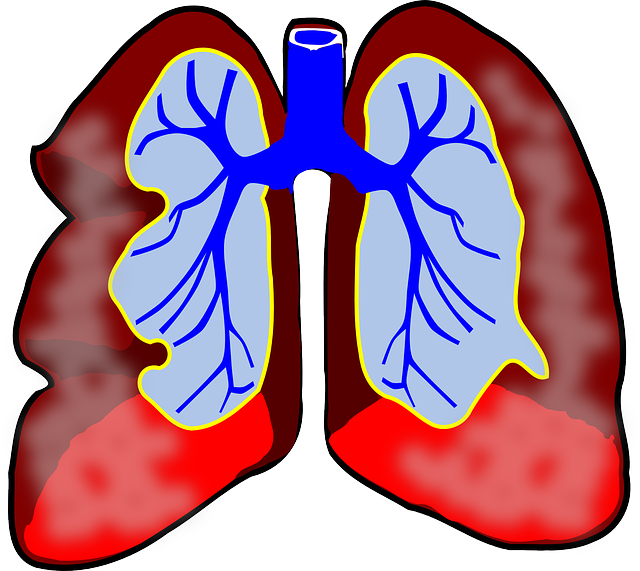Patient disengagement significantly impacts healthcare providers, leading to increased no-show rates, higher costs, and reduced clinical outcomes. To combat this, implementing healthcare retention systems focusing on loyalty-building strategies and ongoing care programs is crucial. These initiatives enhance patient satisfaction and provider success through personalized communication, appointment reminders, and patient lifecycle support. Key strategies include reactivating past patients with incentives, measuring KPIs like patient satisfaction and Net Promoter Score (NPS), and fostering continuous engagement through regular check-ins and educational resources. Effective long-term strategies boost loyalty and contribute to improved health outcomes.
In today’s competitive healthcare landscape, patient disengagement is a significant challenge, leading to higher costs and poorer outcomes. Understanding the common causes behind this issue, such as lack of communication or dissatisfaction with care, is crucial for healthcare providers aiming to improve healthcare retention systems. This article explores effective follow-up strategies, personalized communication, loyalty programs, and key performance indicators to keep patients engaged, satisfied, and committed to continued care.
- Understanding Patient Disengagement: Common Causes and Impact on Healthcare Providers
- The Power of Effective Follow-up Systems: Strategies to Enhance Patient Engagement
- Personalized Communication: Building Trust and Strengthening Patient-Provider Relationships
- Loyalty Programs in Healthcare: Incentivizing Continuous Care and Positive Behaviors
- Measuring Success: Key Performance Indicators for Healthcare Retention Systems
- Best Practices and Case Studies: Implementing Long-Term Patient Engagement Strategies
Understanding Patient Disengagement: Common Causes and Impact on Healthcare Providers

Patient disengagement is a significant challenge for healthcare providers, impacting not just individual patients but also the broader healthcare system. Common causes include lack of patient education, poor communication, and perceived inaccessibility or cost of care. When patients feel disconnected from their healthcare journey, they may stop attending appointments, interrupting treatment plans and leading to potential health deterioration.
This disengagement carries substantial consequences for providers. It can result in higher no-show rates, increased operational costs, and reduced clinical outcomes. Moreover, it hampers the ability to build strong patient relationships and foster loyalty towards the healthcare institution. Implementing effective healthcare retention systems, including loyalty-building healthcare strategies and ongoing care programs, is crucial to combat disengagement, improve patient satisfaction, and ultimately enhance provider success.
The Power of Effective Follow-up Systems: Strategies to Enhance Patient Engagement

Effective follow-up systems are a cornerstone of successful healthcare retention strategies. By implementing robust healthcare retention systems, clinics can transform fleeting interactions into lasting relationships with patients. This involves proactive communication post-visit to reactivate past patients and nurture ongoing engagement. Through personalized messaging, reminders for routine check-ups, and follow-up questions about their experience, healthcare providers demonstrate commitment to patient care, fostering loyalty and encouraging repeat visits.
Strategic follow-up goes beyond mere satisfaction surveys and appointment reminders. It encompasses the entire patient lifecycle support, from initial contact through post-treatment recovery. By integrating technology for seamless scheduling, online portals for easy access to records, and efficient communication channels, clinics streamline patient engagement. These tools enable retention management clinic staff to anticipate needs, address concerns promptly, and ultimately create a positive, memorable experience that keeps patients coming back for continued care.
Personalized Communication: Building Trust and Strengthening Patient-Provider Relationships

Personalized communication is a powerful tool within healthcare retention systems, fostering trust and strengthening patient-provider relationships. By tailoring messages to individual patients’ needs, preferences, and experiences, healthcare providers demonstrate genuine care and attention. This strategy can include personalized emails, text messages, or even phone calls, where providers acknowledge past interactions, offer relevant resources, or simply inquire about the patient’s well-being. Such gestures create a sense of connection and encourage open communication, making patients feel valued and understood.
Moreover, personalized communication allows for proactive engagement throughout the patient lifecycle support. For instance, a retention management clinic might use these strategies to reactivate past patients who haven’t been seen in some time. By reestablishing contact and offering incentives or reminders about upcoming services, the clinic can effectively manage retention and promote continued care. This approach not only increases patient satisfaction but also ensures that healthcare providers stay at the forefront of their minds, fostering long-term loyalty.
Loyalty Programs in Healthcare: Incentivizing Continuous Care and Positive Behaviors

Loyalty programs have emerged as powerful tools within the healthcare sector to foster patient engagement and retention. These initiatives go beyond traditional rewards systems by incentivizing patients to actively participate in their well-being and continue seeking necessary care. By implementing loyalty-building strategies, healthcare providers can encourage positive behaviors such as regular check-ins, preventive screenings, and adherence to treatment plans.
One effective approach is to reactivate past patients through tailored communication and personalized offers. A retention management clinic might send reminders for follow-up appointments or provide exclusive discounts on wellness services. These incentives not only bring patients back but also strengthen their connection with the healthcare institution, fostering long-term loyalty. Such programs contribute to improved patient satisfaction and overall health outcomes while ensuring a steady stream of returning clients for ongoing care.
Measuring Success: Key Performance Indicators for Healthcare Retention Systems

Measuring success in healthcare retention is paramount to understanding what strategies are driving patient engagement and satisfaction. Key Performance Indicators (KPIs) for healthcare retention systems should go beyond simple numbers like appointment attendance or recall rates. Metrics such as patient satisfaction scores, Net Promoter Score (NPS), and the percentage of patients continuing ongoing care programs offer a deeper look into patient experience and loyalty-building healthcare practices. By tracking these KPIs, healthcare providers can identify areas of improvement and optimize their retention management clinic strategies.
For example, a high NPS indicates that patients are likely to recommend the clinic to others, indicating strong brand loyalty. Conversely, low satisfaction scores or high dropout rates from retention programs could signal issues with care quality or patient-provider relationships. By analyzing these KPIs, healthcare institutions can implement targeted interventions and develop robust ongoing care programs, ensuring continued patient engagement and improved health outcomes over time.
Best Practices and Case Studies: Implementing Long-Term Patient Engagement Strategies

Effective long-term patient engagement strategies are vital for healthcare retention systems and can significantly enhance patient satisfaction and loyalty. Best practices include implementing ongoing care programs that foster continuous communication between patients and their healthcare providers. These programs can take various forms, such as regular check-ins, educational webinars, or personalized health coaching. For instance, a retention management clinic might send monthly newsletters with health tips tailored to individual patient needs, encouraging them to stay engaged and actively participate in their care plans.
Case studies have shown that reactivating past patients through targeted outreach can be highly successful. Retaining patients for ongoing care is not just about retaining existing clients but also nurturing relationships over an extended period. By offering valuable resources, support, and incentives, healthcare providers can create a sense of community and encourage patients to prioritize their health. This holistic approach not only improves patient retention rates but also contributes to better health outcomes overall.
